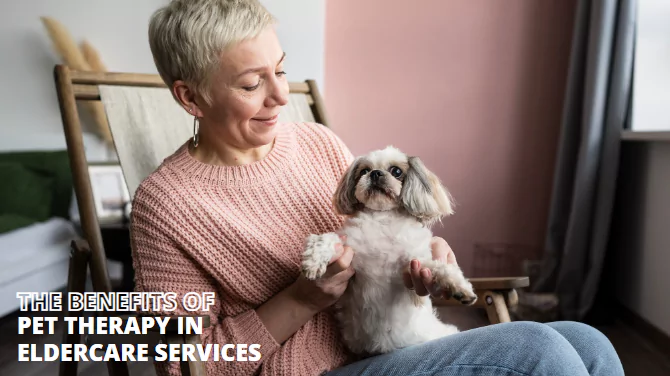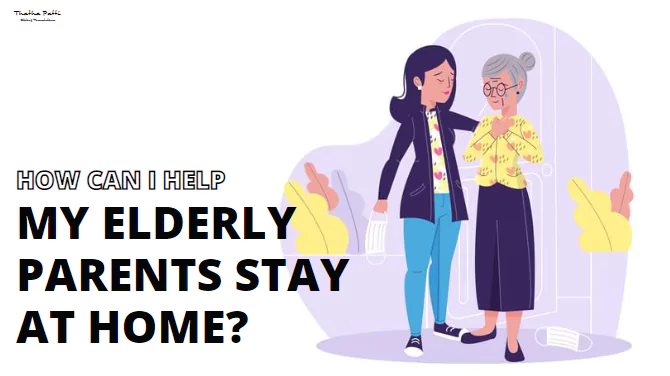- June 01, 2023
- Pet therapy for elder
The benefits of pet therapy in eldercare services

Unleashing Joy and Healing: The Transformative Benefits of Pet Therapy in Eldercare Services
In the world of eldercare, where compassion and holistic well-being are at the forefront, one remarkable therapy stands out: pet therapy. The power of animals to touch the hearts and souls of elderly individuals is profound, bringing joy, comfort, and healing to their lives. In this blog, we explore the transformative benefits of pet therapy in eldercare services, highlighting the emotional connections, companionship, and overall well-being that these furry friends provide.
-
Unconditional Love and Companionship: Pets have an uncanny ability to offer unconditional love and companionship to elderly individuals. They become loyal and devoted companions, offering a constant presence and a listening ear. The simple act of stroking a soft fur coat, feeling the warmth of a furry body, or hearing a gentle purr or wagging tail can bring immense comfort and a deep sense of connection.
-
Alleviating Loneliness and Depression: Loneliness and depression are common challenges faced by many elderly individuals. Pet therapy provides a powerful antidote to these emotions. Pets offer a sense of purpose and routine, filling the void of solitude with their playful antics and affectionate gestures. The presence of a furry friend can lift spirits, foster a sense of belonging, and combat feelings of isolation, leading to improved emotional well-being.
-
Enhancing Cognitive Function: Engaging with pets through activities such as grooming, training, or playing stimulates cognitive function in elderly individuals. The mental stimulation involved in caring for a pet helps maintain cognitive abilities and can even slow down cognitive decline. The responsibility of remembering feeding schedules, training commands, or medication reminders exercises the mind, contributing to mental sharpness and overall cognitive well-being.
-
Physical Health Benefits: Pet therapy also has remarkable physical health benefits for the elderly. Interacting with animals can lower blood pressure, reduce stress levels, and promote relaxation. The gentle exercise involved in activities like walking a dog or playing with a cat can improve mobility, balance, and overall physical fitness. Additionally, the presence of pets has been shown to boost the immune system and promote faster recovery from illness or surgery.
-
Social Engagement and Connection: Pets serve as social catalysts, encouraging interaction and fostering social connections among elderly individuals. Taking a pet for a walk often leads to conversations with other pet owners or passersby, creating opportunities for meaningful social engagement. Pets can serve as icebreakers, bringing people together, and easing social anxiety. They provide common ground for shared experiences and facilitate the formation of new friendships.
-
Sense of Purpose and Responsibility: Caring for a pet gives elderly individuals a sense of purpose and responsibility. Having a furry friend relies on them for food, exercise, grooming, and affection, instilling a sense of meaning and value in their daily lives. This responsibility can boost self-esteem, foster a sense of accomplishment, and provide a renewed sense of purpose during the later stages of life.
Pet therapy shines as a powerful tool to promote emotional well-being, alleviate loneliness, enhance cognitive function, improve physical health, and facilitate social connection among elderly individuals. The profound bond formed between humans and animals transcends words, offering a language of love, understanding, and healing. As we embrace the benefits of pet therapy in eldercare services, we open doors to joy, companionship, and a renewed zest for life, allowing our elderly loved ones to experience the transformative power of furry friends by their side.





